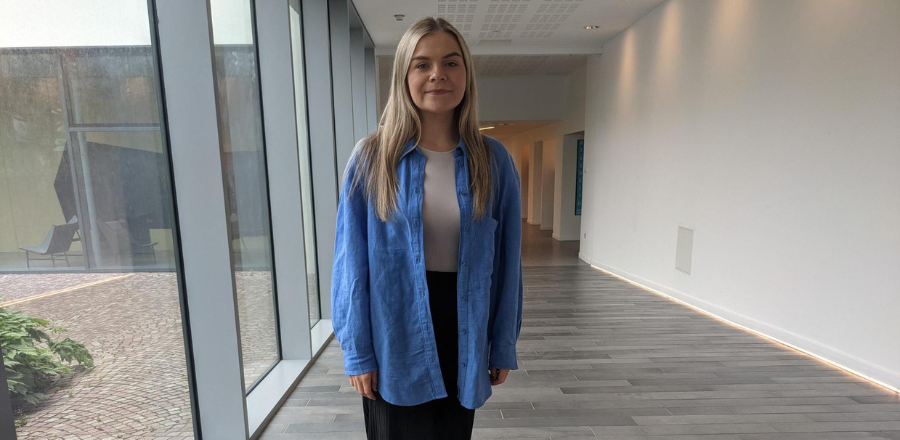Inspirational social work student plays key role in Scottish Government campaign

A GCU student is helping shape Scotland’s National Care Service by reflecting on the challenges she faced as a young carer.
Third year BA (Hons) Social Work student Lucy Challoner has been looking after her mum, who suffers from Alcohol Related Brain Damage (ARBD), for more than six years.
During that time, she’s helped raise awareness of the disease and is now taking part in a campaign with the Scottish Government to help promote the National Care Service - which is set to be functional by the end of the 2026 parliamentary term.
The National Care Service Bill was recently published and allows Scottish Ministers to transfer social care responsibility from local authorities to a new system, which aims to ensure that equity of social care is achieved across the country.
We spoke with Lucy to find out more about her personal journey and how she came to be involved in the campaign:
Alcohol Related Brain Damage (ARBD)
I’d never actually heard of the condition until I was 18. When I was younger, my dad died and my mum used alcohol as a coping mechanism. Over the years, her alcohol use progressed to the point where she was really unwell and lost a lot of weight. Her mobility wasn’t great and she was having a lot of falls - I didn’t actually know what was wrong with her.
It wasn’t until she was taken into hospital that I first became aware of ARBD - a cognitive impairment caused by long-term alcohol abuse. It can affect memory and lead to confusion, as well as falls. It also leads to people drinking a lot without recognising what’s actually happening to them. It was a real shock for me and I didn’t really have any family support; I was worried she was going to die.
Thankfully, with the condition, if you do stop drinking then it can lead to some form of recovery. It just depends on the individual; some people can have permanent brain damage or still require constant care.
Progress
My mum’s doing better. She’s not drank any alcohol in the last two or three years and her mobility and memory has really improved, but she does still require help from support workers to make sure she’s eating enough.
I’m also still caring for her, and have been for the last six years. Even before she was diagnosed, I’d taken on care responsibilities because she was so unwell.
Raising awareness
When my mum was diagnosed, I went online and tried to find information but it was all old journal articles and it wasn’t the easiest for an 18-year-old to understand. For example, they spoke about confabulation and I had no idea what that was, but after researching it I realised that my mum does confabulate (presenting false information but believing it to be true).
I decided to make a Facebook page and post pictures and information to help people understand it, because I had nobody to talk to about it. Our generation all use social media, and I’ve had a lot of people reaching out to me saying that it’s helped them so much. My mum actually now helps me run the social media page and really enjoys getting involved in giving me ideas.
Opportunity
A family friend works at the Scottish Government and got in touch to say they were looking for carers to basically provide them with information to help shape a new National Care Service, which was part of the SNP’s manifesto when they were re-elected. They’ve held a range of consultations with service users and carers to find out what would benefit them on their journey in terms of access and support.
I spoke a lot about not having an allocated worker, meaning I’d have to phone up the council and tell my story over and over again to different people. We had to wait over a year for my mum’s care package and had been told over the phone constantly that someone would call me back - no-one ever did. Eventually, I had to explain the impact the caring responsibilities were having on my mental health: that’s when I got the care package. I want people to be able to access the right support for them at the time they need it.
Embracing new experiences
My interview features in a video which has already been shared on the Scottish Government’s social media channels and my individual film is going to be shown at a conference with staff from NHS Scotland and Kevin Stewart, Minister for Mental Wellbeing and Social Care.
Having the opportunity to openly talk about my experience has been the perfect way for me to move out of my comfort zone. I love meeting new people and it’s so important for my future career as a social worker – open dialogue is so important, so I may as well get used to doing it just now.
You can follow Lucy’s ARBD Awareness Scotland pages on Facebook and Twitter
By Ross Clark
Got an SHLS or GSBS story? Email me at Ross.Clark@gcu.ac.uk or message me on Twitter
